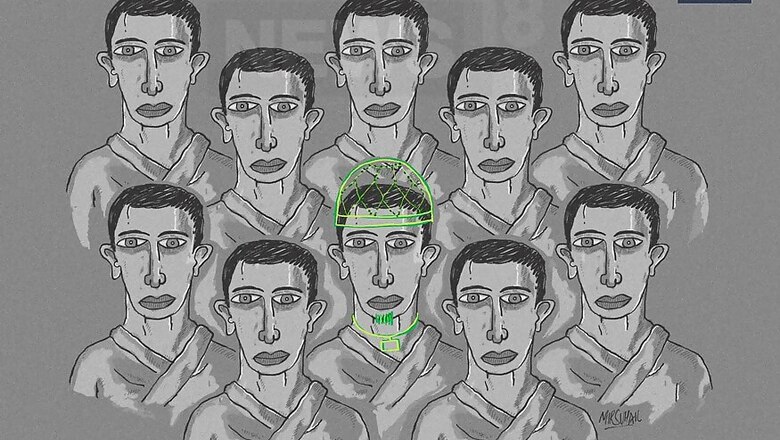
views
Most of the tributes on Justice Sachar missed one aspect of his personality — he was a visionary, a man beyond his times.
He understood the issues of the economically, socially and deprived classes of India including the minorities. That "the Indian Constitution is committed to the equality of citizens and the responsibility of the State to preserve, protect and assure the rights of minorities in matters of language, religion and culture. That is why our national leaders while framing the Constitution, emphasized the doctrine of unity in diversity".
Justice Sachar highlighted the problems faced by a minority broadly relate to issues of identity, security and equity. He understood that the social, cultural and public interactive spaces in India can be very daunting for Indian Muslims. That they carry a double burden of being labelled as “anti-national” and as being “appeased” at the same time.
While Muslims need to prove on a daily basis that they are not “anti-national” and “terrorists”, it goes unrecognised that the alleged “appeasement” has not resulted in the desired level of socio-economic development of the community.
Muslim identity affects everyday living in a variety of ways, ranging from being unable to rent/buy a house to accessing good schools for their children. Buying or renting property in localities of one’s choice is becoming increasingly difficult for Muslims. Apart from the reluctance of owners to rent/sell property to Muslims, several housing societies in “non-Muslim” localities ‘dissuade’ Muslims from locating there.
There is a lacking sense of security among Muslims and a discriminatory attitude towards them. Communal tensions or any untoward incident in any part of the country is enough to make Muslims fear for their safety and security. The lackadaisical attitude of the government and the political mileage sought whenever riots occur has been very painful for the community.
On the other hand, the police, along with the media, overplay the involvement of Muslims in violent activities and underplay the involvement of other groups, organisations. Sachar report had therefore recommended that state governments and UTs be requested to consider the recommendation of posting Muslim officers in police stations, Muslim health personnel and teachers in Muslim concentration areas.
A High Level Committee set up to study the social, economic and educational status of the Muslim community of India, under the chairpersonship of Justice Sachar, had recommended the setting up of an Equal Opportunity Commission (EOC), National Data Bank, Assessment & Monitoring Authority to address the grievances of deprived groups, including the Muslim community. Another unique recommendation was to institute a diversity index — a transparent and acceptable index to measure diversity in the areas of education, government and private employment and housing.
The need for an Equal Opportunity Commission has been aptly summarised in the report. “Equality is a foundational value of our Republic. This is secured by the Constitution through Fundamental Rights and Directive Principles of State Policy and is widely shared in public life. Yet, stark inequalities mark our social reality for the present generation and prospects of the future generations. Worse, these inequalities often coincide with boundaries of social groups and communities making inter-group inequalities more visible than before. Hence, there is a need to address inequalities and supplement the existing policies of reservations by fine-tuning the definition of the beneficiaries, expanding the range of modalities and evolving a forward-looking and integral approach to affirmative action.”
Equality of opportunity may or may not lead to equality of outcomes; the concept suggests a level playing field and a fair race at the end of which some participants get rewards, some do not. Equality of opportunity is in principle compatible with inequality of outcomes – it offers an equal chance to be unequal.
The Sachar report highlighted the fact that though the government has been implementing a range of schemes and programmes targeting deprived sections, these efforts need to be evaluated to ascertain how they could be made more effective in delivering the intended benefits. This is necessary to reduce inequalities which persist covering the entire spectrum of material life and basic survival needs like food, water and shelter to higher order goods or benefits like technical education or representation amongst the privileged segments of society. NSSO data confirms this.
Today, the awareness of significant enclaves with unprecedented wealth and privilege heightens sensitivity to disproportionately distributed poverty and deprivation. Although the programmes of the government are targeted at particular social groups and sectors, these efforts need to be re-visited and expanded if they are to meet the challenges of the present.
Lessons from the functioning of Equal Opportunity Commissions and similar organisations in other countries demonstrate the utility of such an institution if it is tailored to the specific socio-economic, judicial and institutional context of the country. The proposed equality commission needs to be autonomous and follow an evidence-based approach.
One of the Sachar Committee’s recommendation was setting up of a National Data Bank to collect data relating to government schemes and programmes for socio-religious communities. The data collected was to be analysed and assessed by the autonomous Assessment & Monitoring Authority. Both these critical inputs would be available to the proposed EOC, apart from data of the Census, NSSO and other sources.
The role envisaged for EOC is to ensure equal opportunity and non-discriminatory practices in the areas of employment and education, specifically for deprived groups. The EOC is expected to be a watch-dog institution that serves as a mechanism to evolve and evaluate measures for promotion of equal opportunities, following an evidence-based approach.
The jurisdiction of Equal Opportunity Commission would extend to all “deprived groups”, who have been denied or who claim to have been denied equal opportunities by government, public and private bodies in education and employment. EOC was to assist the deprived groups in securing equal opportunity through suitable schemes or measures from the Central or State Government, and public and private enterprises and institutions. It is to work towards ensuring the elimination of all forms of discrimination and denial of equal opportunity. The EOC would investigate practices of inequality of opportunity in education, employment and such other areas as may be notified by the Central Government and recommend remedial measures. It will evaluate the attainment of equal opportunity and the obstacles to such attainment for different groups of people.
The recommendation of the Sachar Committee was revolutionary for addressing the problems of shared spaces.
"The idea of providing certain incentives to a 'diversity index' should be explored. Admittedly, this is a complex proposition but if a transparent and acceptable method to measure diversity can be developed, a wide variety of incentives can be linked to this index. The diversity principle which entails equity is to be applied not only between the majority and minorities but also between minorities so that the truly disadvantaged can and should benefit. Given an acceptable diversity index, policies can provide for incentives in the form of larger grants to those educational institutions that have higher diversity and are able to sustain it."
"These incentives can apply to both colleges and universities, while also to private sector companies encouraging diversity in the work force. While such initiatives should be part of the corporate social responsibility, some affirmative action may help initiate this process. Incentives should also apply to builders for housing complexes that have more 'diverse' resident populations to promote 'composite living spaces."
(Ashish Joshi, is a civil servant. He was the nodal officer for implementation for the recommendation for Sachar Committee Report and PM's new 15 Point Programme for welfare of the Minorities, Ministry of Minority Affairs (2006-2011). He is a post-graduate from St Stephen’s College and an alumnus of Indian Institute of Public Administration and National Institute of Financial Management. Views are personal.)




















Comments
0 comment